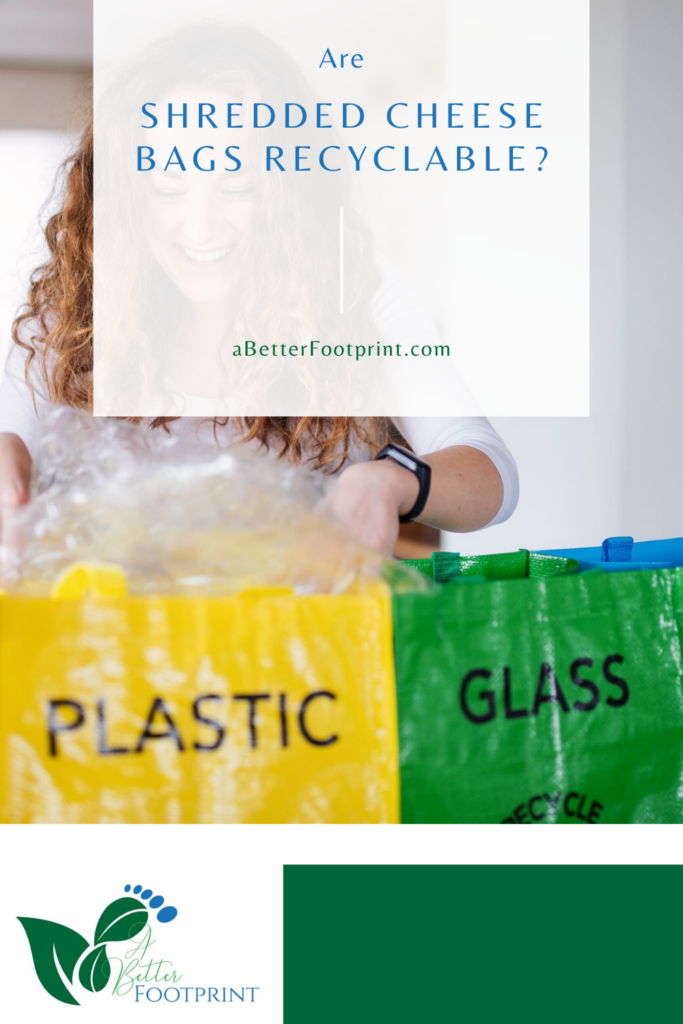Cheese is among the most versatile dairy products we use every day. This also means tons of cheese bags in our waste, which poses additional burden to the worsening case of plastic pollution. Made of plastic, shredded cheese bags could be recycled, but it is not as easy as it sounds.
The popularity of stand up pouches
For the longest time, using stand up pouches or barrier bags for products showed a reduction in production cost and an improvement in shipping or transportation efficiencies.
These pouches also help improve branding campaigns and make products stand out among their competitors. The convenience it poses to consumers also drove sales to shoot up, which soon made more and more brands follow the trend.
In this day and age when people crave convenience, resealable stand up pouches tend to be a better alternative to hefty boxes, jugs, and jars. Not only do they keep cheese fresh for a longer period of time increasing its shelf life, they are also lighter and save up space in the bag, making them ideal for people on the go.
Its lightweight characteristic also benefits the companies using them. Naturally, transporting a truckload of flexible pouches consume less fuel compared to transporting heavy glass jars. This way, they think they are cutting down on carbon emissions.
The recyclability of shredded cheese bags
Contrary to popular belief, shredded cheese bags can be recycled with other R-7 coded plastic.
R-7 coded plastic belongs to Number 7 plastics, or all other plastics not classifying under Number 1-6 plastics. These include other compostable and biodegradable plastic, such as polyacid, acrylic, and nylon, among others.
However, not everyone can recycle these bags, as not all companies support this initiative due to added costs and manpower needed. Recycling this type of plastic is also not as easy as recycling PET bottles, which does not take as much hard work.
Although a few leading brands have started switching from traditional rigid containers to flexible pouches for packaging, consumers should stay mindful of the products they buy if they are concerned of its environmental effects.
As consumers, it is crucial for us to understand which brands do their part to protect the planet. This is also why we should make it a habit to check the label before purchasing, and see if the packaging is recyclable at all.
Kraft stand up pouches: A greener way to pack shredded cheese
Should companies really switch to brown paper bags from the stand up pouches usually used to contain shredded cheese? Not so fast. A more sustainable way to eradicate plastic shredded cheese bags is to make them from recyclable and compostable materials.
In an objective to lessen positive environmental impact, many companies have started looking into flexible retail packaging.
A stand up pouch made from kraft materials is laminated. Its layers of film are recyclable and landfill friendly. Although not totally biodegradable, it is recyclable. There are valid reasons why companies cannot make their packaging biodegradable. Topping their reasons is that they want to guarantee freshness in their products without being too harsh to the environment.
To be biodegradable, shredded cheese bags have to break down when exposed to light and air. One of the biggest advantages of using these pouches for packaging is how their laminated layers and opaque finish block out light and air. This feature extends the shelf life of food. It also protects cheese from spilling or being in contact with harmful contaminants.
A food grade, FDA approved, resealable kraft stand up pouch will make any product stay fresh since moisture, air and pests are all blocked for an extended period of time.
What about other cheese packaging?
On the other hand, sliced cheese wrappers are not commonly marked with a Resin Identification Code (IRC). This makes it hard to tell what type of plastic they’re made of.
However, a quick research will tell you that the plastic wrapped around individual sliced cheese is a form of low-density polyethylene (LDPE). It is the same plastic in grocery bags but in a thicker form.
While it is recyclable, the danger with cheese wrappers is the plastic film which can damage the equipment used in recycling. Because they are smaller and thicker than cling wraps, the best way to dispose of sliced cheese wrapper is to drop them off to recycling facilities.
Common questions on shredded cheese bags
Can you put grocery bags in the recycle bin?
No. Despite its wide usage around the globe, soft plastic bags are not readily recyclable. The best way to dispose of them is to make sure they are separated from the rest of your garbage. That way, your community’s recycling facility will be able to see what they can do with your recyclable waste.
Can you recycle Kraft cheese bags?
Yes, you can. Kraft cheese bags are recyclable, making them more popular than plastic cheese wrappers. However, recycling them requires special conditions and should be left for facilities instead of doing it yourself.
Why is soft plastic not recyclable?
Soft plastic has the tendency to get entangled in materials recycling facilities (MRFs). Their soft nature makes them hard to be processed, too. This also explains why tons of soft plastic are left sitting in landfills for a long period of time.
Like other recyclable plastics, cheese bags are not recycled easily. They require specialized recycling processes that can only be done in big facilities. As a clincher, not all facilities accept soft plastic as recyclables because of how it can affect machineries and hamper the whole process in the long run. It is still best to turn to easily recyclable alternatives over plastic wraps.


